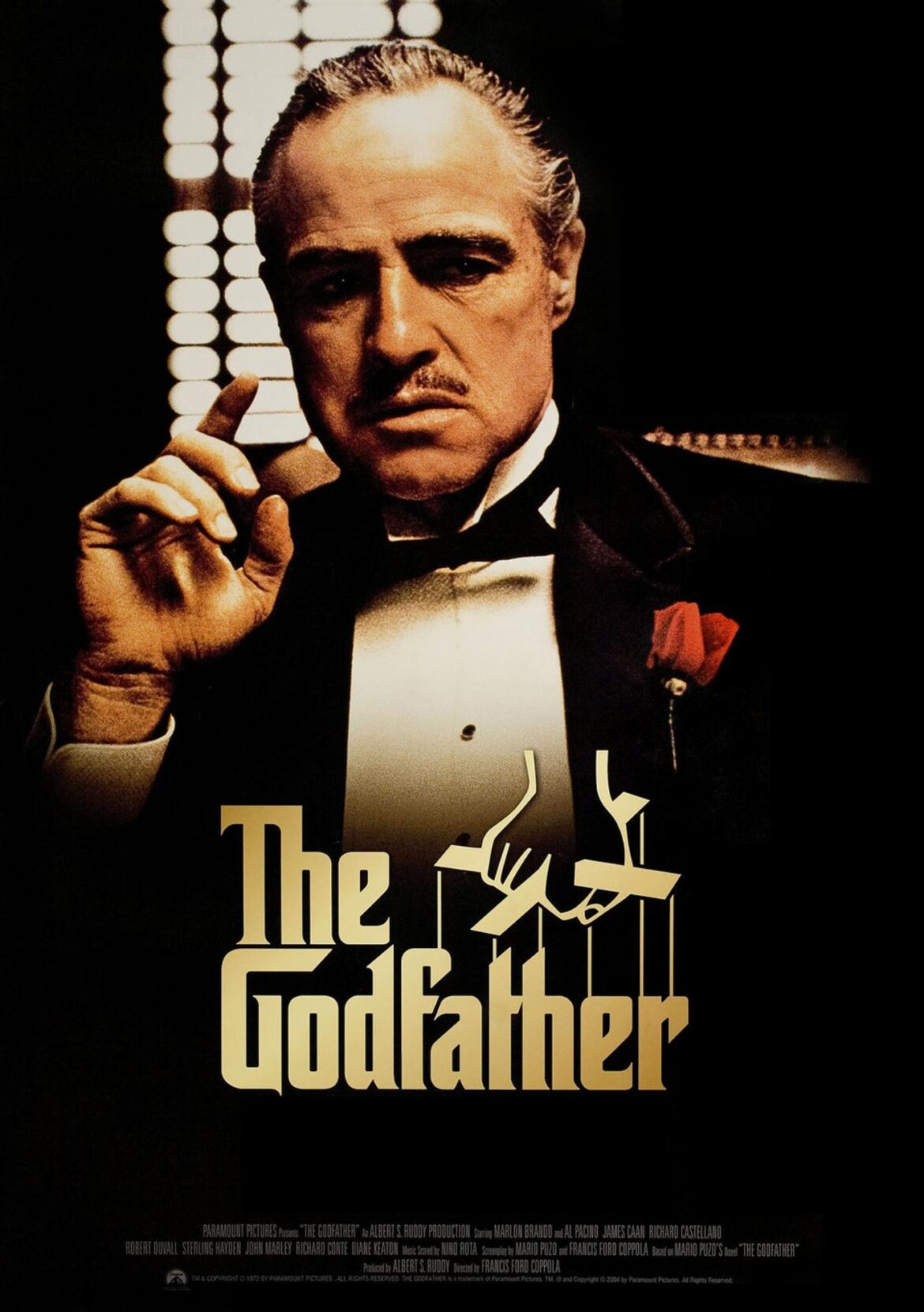The Godfather (1972) – A Timeless Masterpiece of Crime and Power
Type: Movie
Country: USA
Genre: Crime, Drama
Release Date: March 24, 1972
Duration: 175 minutes
Director: Francis Ford Coppola
Production Companies: Paramount Pictures, Alfran Productions
Cast: Marlon Brando, Al Pacino, James Caan, Diane Keaton, Richard S. Castellano, Sterling Hayden
Quick Review:
“The Godfather” (1972) is a monumental film directed by Francis Ford Coppola that redefined the crime genre and set a new standard for cinematic storytelling. With its complex narrative, exceptional performances, and rich atmospheric detail, the film stands as a timeless masterpiece. Marlon Brando’s iconic portrayal of Vito Corleone and Al Pacino’s nuanced performance as Michael Corleone anchor this profound exploration of power, family, and crime.
Plot Summary:
The story revolves around the powerful Corleone crime family, led by patriarch Vito Corleone (Marlon Brando). As Vito navigates the intricacies of organized crime and maintains his family’s empire, he faces a major threat when a rival faction attempts to challenge his authority. Following an assassination attempt on Vito, his youngest son, Michael Corleone (Al Pacino), who initially distanced himself from the family’s criminal activities, is drawn into the fold. Michael’s transformation from a reluctant outsider to a ruthless crime boss forms the crux of the narrative, exploring themes of loyalty, power, and the moral cost of leadership. The film culminates in Michael’s complete takeover of the family business, signifying his embrace of the criminal world and the loss of his initial ideals.
Characters and Performances:
- Marlon Brando (Vito Corleone): Brando’s portrayal of Vito Corleone is legendary, earning him an Academy Award for Best Actor. His nuanced performance captures the character’s blend of paternal warmth and unyielding authority, becoming one of cinema’s most iconic roles.
- Al Pacino (Michael Corleone): Pacino delivers a masterful performance as Michael, showcasing his character’s evolution from an innocent war hero to a calculating crime lord. Pacino’s performance is both subtle and intense, highlighting the internal conflict and moral decay within Michael.
- James Caan (Sonny Corleone): Caan portrays Sonny Corleone with a fiery intensity, embodying the volatile and aggressive nature of the character. His performance provides a stark contrast to the more composed Vito and Michael.
- Diane Keaton (Kay Adams): Keaton plays Kay Adams, Michael’s love interest and eventual wife, with a blend of warmth and resilience. Her character serves as a foil to the Corleone family’s criminal activities, providing an emotional anchor to Michael’s tumultuous journey.
- Richard S. Castellano (Clemenza): Castellano’s portrayal of the loyal and practical Clemenza adds depth to the film’s depiction of the inner workings of the Corleone family.
Direction and Cinematography:
Francis Ford Coppola’s direction is meticulous and immersive, crafting a rich and complex narrative that explores the dark underbelly of power and family. The film’s cinematography, led by Gordon Willis, employs a distinct visual style with its use of shadows and low-light scenes, creating a moody and atmospheric tone that enhances the story’s dramatic weight. The deliberate pacing and detailed attention to character development allow the film to unfold with depth and authenticity.
Music:
Nino Rota’s haunting score for “The Godfather” is integral to the film’s atmosphere, weaving together themes of melancholy and menace. The main theme, with its memorable and evocative melody, has become synonymous with the film and the genre itself. Rota’s music accentuates the emotional and narrative beats of the film, enhancing its impact and resonance.
Why It Endures:
“The Godfather” endures as a cinematic masterpiece due to its rich storytelling, complex characters, and its exploration of timeless themes such as power, loyalty, and moral ambiguity. Its influence on the crime genre and film-making as a whole is profound, with its iconic performances and memorable scenes leaving an indelible mark on popular culture. The film’s ability to combine a compelling narrative with deep character studies ensures its continued relevance and acclaim.
In Conclusion:
“The Godfather” (1972) is a quintessential film that remains a benchmark in cinematic history. Directed by Francis Ford Coppola, the film’s powerful narrative, exceptional performances, and masterful direction combine to create a timeless classic. Marlon Brando’s and Al Pacino’s performances, along with the film’s atmospheric cinematography and haunting score, contribute to its status as one of the greatest films ever made. Its exploration of family, power, and morality continues to captivate audiences and solidify its place in the pantheon of cinematic excellence.


